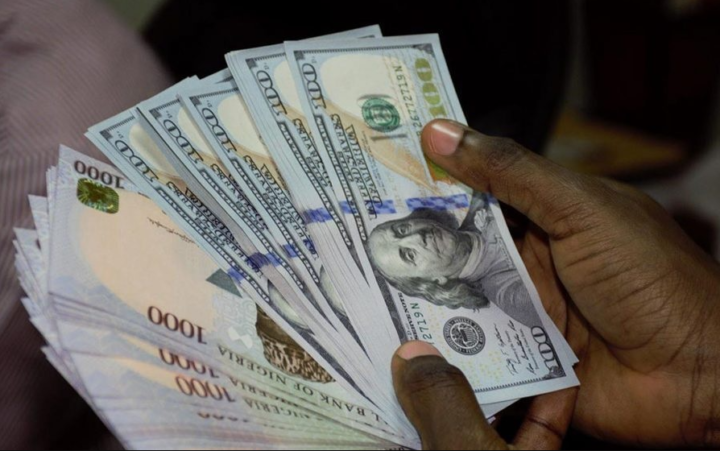In a significant and highly-anticipated development that has the potential to reinvigorate Nigeria’s economic landscape, the Central Bank of Nigeria (CBN) has taken decisive measures to address a persistent backlog of foreign exchange (FX) obligations, some of which have been outstanding since as far back as March 2023. This move is poised to serve as a catalyst, boosting investor confidence and delivering a substantial stimulus to the national economy.
The commitment of the CBN to resolving these longstanding FX obligations comes as a much-needed relief, particularly for the international banking sector and major international airlines, including Etihad, Emirates, and Ethiopian Airlines, which have eagerly awaited the payment of their outstanding dues.
Notably, President Bola Tinubu, in a recent address at the 29th Nigerian Economic Summit held in Abuja, made a bold promise to clear the estimated $7 billion in outstanding foreign exchange obligations owed to banks, which encompass foreign currency forward contracts. His announcement was a resounding affirmation of the government’s commitment to addressing the challenges faced by the business community within the financial markets, assuring them of additional foreign exchange liquidity to restore market confidence.

President Tinubu emphasized the government’s dedication to honoring all foreign exchange future contracts, signaling a definitive step towards resolving this persistent issue. In line with this commitment, the CBN has taken proactive measures to fulfill this promise by commencing settlements of its FX obligations with select banks, including Citibank, Stanbic IBTC, and Standard Chartered, among others.
This recent development marks a significant stride towards addressing the FX backlog that has cast a shadow over investor confidence in the Nigerian economy for an extended period. The much-needed resolution of these obligations signals a positive outlook for the nation’s financial landscape and is set to provide a much-needed boost to the broader economic ecosystem.
Furthermore, the Minister of Finance and Coordinating Minister of the Economy, Wale Edun, has disclosed that the country is anticipating approximately $10 billion in inflows in the near term. This influx of foreign currency is poised to play a pivotal role in clearing the FX backlog and stabilizing the Nigerian Naira, thereby instilling renewed optimism and economic stability within the nation.
Edun highlighted various sources contributing to this expected inflow, including increased production, reduced expenditure, forward sales, and investments from sovereign wealth funds. These sources of foreign exchange inflow not only offer a promising means of addressing the backlog but also serve as a mechanism to bolster the country’s overall financial standing.
As Nigeria progresses towards resolving its FX obligations and strengthening its financial position, the outlook for its economy appears increasingly promising. The backlog that has loomed over the Nigerian financial landscape is gradually being addressed, laying the foundation for the stability of the Naira and a more favorable inflation outlook.
This development is of profound significance not only for the financial and business communities but for all Nigerians, as it paves the way for increased economic stability, bolstered investor confidence, and the potential for enhanced economic growth. It also demonstrates the government’s commitment to fostering a conducive business environment and ensuring that international obligations are met in a timely and responsible manner.
The ongoing efforts to clear the FX backlog reflect a dedication to fostering an atmosphere of trust and reliability in the nation’s financial dealings, which is essential for attracting foreign investments, stimulating economic growth, and enhancing Nigeria’s standing in the global economic arena.
Moreover, the resolution of the FX backlog aligns with Nigeria’s broader economic goals, including the promotion of trade and investment, strengthening the nation’s position in the global market, and creating an environment conducive to foreign investment. Clearing this backlog is a crucial step in achieving these objectives, as it eliminates a long-standing impediment to foreign exchange stability and investor confidence.
In conclusion, the decisive actions taken by the Central Bank of Nigeria to address the FX backlog represent a significant milestone in the country’s ongoing journey towards economic revitalization and stability. With President Bola Tinubu’s commitment to clearing outstanding foreign exchange obligations and the proactive measures implemented by the CBN, Nigeria is on a path towards overcoming this challenge and realizing its economic potential.
The expected influx of foreign currency, combined with prudent economic management, will contribute to the stabilization of the Naira, instilling optimism and stability within the nation. This development augurs well for businesses, financial institutions, and individuals alike, as it offers the promise of a more predictable and robust financial environment, fostering investment, growth, and prosperity.
Support InfoStride News' Credible Journalism: Only credible journalism can guarantee a fair, accountable and transparent society, including democracy and government. It involves a lot of efforts and money. We need your support. Click here to Donate
